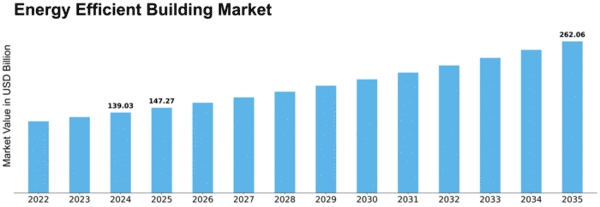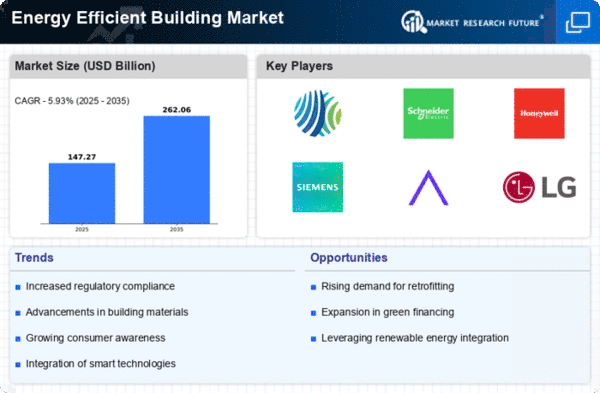Energy Efficient Building Size
Energy Efficient Building Market Growth Projections and Opportunities
People are becoming more aware of environmental issues and how important it is to fight climate change right away. This is increasing the demand for buildings that use less energy. Sustainable building methods are very important to customers, businesses, and governments because they help them cut down on carbon pollution and reach bigger sustainability goals. Building rules and laws are very strict all over the world. These laws and rules say that buildings must meet energy saving standards. Following these rules changes how buildings are planned and made, which in turn grows the market for buildings that use less energy. People choose to live in buildings that use less energy because they save money in the long run by having lower running costs and using less energy. People who own or develop land know that cutting energy costs and improving property prices can make them a lot of money. Things that are used in buildings and technology are always getting better, which is great for the area of efficient building. Smart building technologies, energy management systems, and automatic settings all help buildings use less energy and do their jobs better. Clean energy sources, like solar screens and wind machines, are very important to the growth of designing buildings that use less energy. People depend less on traditional power sources when they use clean and green energy sources. This makes places better for the earth. Another important part of building in an energy-efficient way is using tools, lights, and HVAC (heating, ventilation, and air conditioning) systems that use less energy. The rules for green building say that tools that are very efficient must also be very efficient. More people are concerned about saving energy and being good to the environment, which changes the homes they choose to buy. Green house sales are led by people who want to buy or rent homes and are interested in them. Buildings that use less energy must follow the rules set by these programs, such as ENERGY STAR and LEED. Before a project can go forward, it has to follow strict rules. This makes builders and developers more likely to use methods that save energy. Energy efficiency gets better as building technology and insulating materials get better. Better shielding materials in modern building materials keep the temperature inside your home stable, so you don't have to heat or cool it as much, which saves energy. Energy trends around the world, like worries about energy security and running out of resources, have an effect on the building company that uses less energy. Because of the push for energy freedom and moving to more eco-friendly energy sources, it is more important than ever to build in a way that uses less energy.



















Leave a Comment